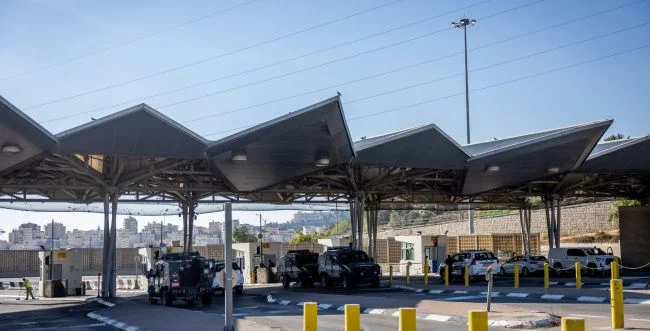IDF’s shocking Ramadan concessions: Checkpoints removed amid rising tensions
Despite recent escalations and ongoing security threats in the region, the Israel Defense Forces (IDF) has enacted a series of significant concessions in Judea and Samaria for Ramadan.

This includes the removal of several vital checkpoints, as well as restrictions on patrols in Palestinian villages. The move comes as part of the IDF’s efforts to ease travel for Palestinian civilians during the holy month of Ramadan while also balancing security concerns.
Several checkpoints, originally established following severe terror attacks or located along roads frequently used by terrorists, were removed this week. Notably, the Jit checkpoint in Samaria, which had been closed for several months, was reopened. This checkpoint is situated near one of the exits from Shechem (Nablus). Similarly, the Bayt Fajar checkpoint in Gush Etzion, which was previously closed to Arab traffic, has also been reopened. In the Efraim Brigade area, several other checkpoints were dismantled, including those that previously served as the primary separation between Palestinian population centers and Jewish roads.
Among the more notable checkpoints removed were those at the main exit from Tulkarm, which is near the site where Elahan Klein was murdered. Checkpoints in Funduk and Jinsafut, located near the site of a deadly attack on Route 55 two months ago, were also taken down. Additionally, checkpoints near the Avnei Hefetz guard tower, under a bridge, were removed as well.
In line with the Ramadan concessions, soldiers in Judea and Samaria have received specific instructions to limit their actions during the fasting hours of Ramadan. These instructions include a ban on setting up surprise checkpoints and a restriction on delaying Palestinian vehicles for inspection for more than ten minutes in the afternoon and evening hours. This is intended to minimize disruption for those observing the fast. Furthermore, soldiers have been instructed to avoid patrols in villages between 4:00 and 9:00 p.m., particularly near the first line of houses in villages bordering Jewish roads, during the Iftar (meal breaking the fast).
The concessions have drawn criticism from some quarters, including the “Nilhamim Al Hahaim” (Fighting for Life) organization, which argues that the IDF’s approach is too lenient. The organization condemned the removal of the checkpoints, stating, "The IDF and ISA sound as if they want to stop terrorism, but in fact, they treat the enemy like a peace-seeking population." They continued, "Thousands of times it has been proved that this is a fully hostile population that is a partner of terrorism, and it must be destroyed before it destroys us."
The group further called for a more aggressive stance against terrorism, emphasizing that the defense establishment needs to undergo a serious overhaul. "With the replacement of the Chief of Staff, the defense establishment must go through a serious cleaning to change its approach which still hasn't changed after a year and a half of war," they added.
As Ramadan continues, the balance between easing civilian movement and ensuring security in Judea and Samaria remains a contentious issue, with both sides weighing the potential risks and benefits of these military concessions.